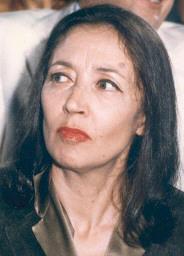Publishers of a posthumous book by controversial crusading journalist Oriana Fallaci have had to print a third edition in three days due to public demand.
Rizzoli realised the initial print run of A Hat Full of Cherries would not satisfy demand on Thursday, and issued a second edition with 50,000 extra copies.
But on Friday the publishing house was forced to issue a third edition, with a print run of 100,000 copies, after Fallaci fans continued to snap up copies.
The book - a semi-fictitious chronicle of Fallaci's ancestors spanning the years 1773 to 1889 - has sold now half a million copies in three days.
Known for her abrasive interviewing style, chain-smoking Fallaci (1929-2006) was one of the first female war correspondents and grabbed front-page headlines in the years before her death with scathing attacks on Islam for which she was accused of inciting hatred against Muslims.
She was also renowned for a serious of prickly interviews with some of the world's most powerful figures including Yasser Arafat, Muammar Gaddafi and Indira Ghandi.
She harangued Henry Kissinger into calling the Vietnam War ''useless'' - an admission that later prompted him to call the interview ''the single most disastrous conversation I ever had with a member of the press''.
Fallaci wrote best-selling works of fiction and semi-fiction including Letter To An Unborn Child (1975), which topped the charts in Italy for years, and A Man (1979), the story of the love of her life, tragic Greek leftist Alekos Panagulis.
Her works sold millions of copies in some 30 countries including China, Japan, Thailand and across the Arab world, but she always felt an outsider in Italian literary circles.
Spurning the Italian intellectual elite, Fallaci lived most of her later years on the Upper East Side of Manhattan. She returned to Florence in 2006 a few weeks before her death from cancer aged 77.









